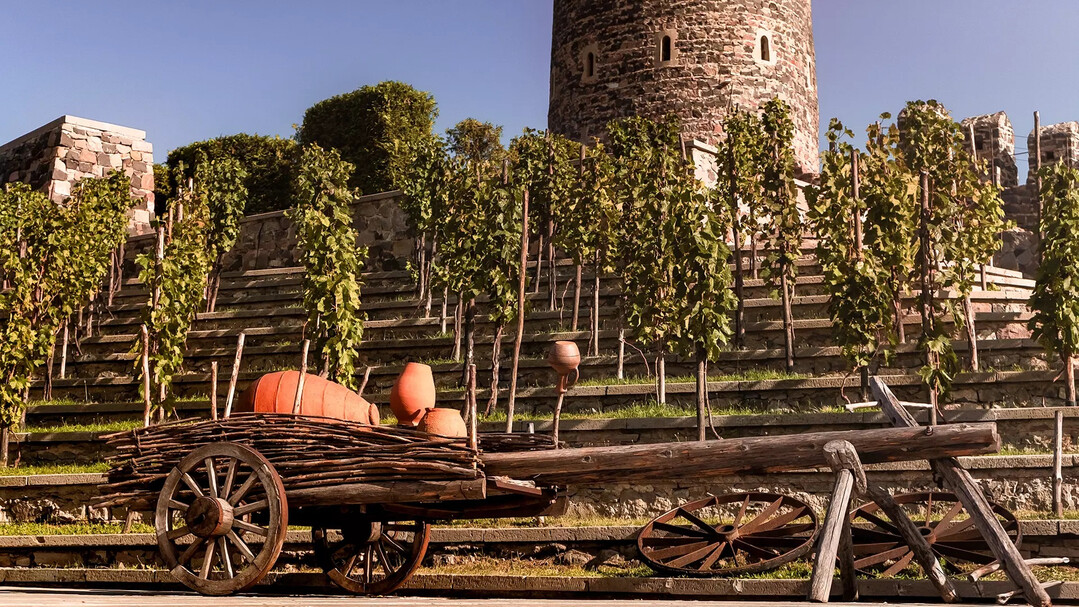
(C) Georgia Travel
Georgia, nestled in the South Caucasus, holds the title of the world's winemaking birthplace, tracing its viniculture back 8,000 years. For Georgians, however, wine transcends mere commerce, serving instead as a profound product of faith. This conviction is rooted in history: Georgia was the second nation to adopt Christianity as a state religion (326 AD), famously predating the Roman Empire.
In Christian scripture, the grapevine holds supreme authority, symbolizing Jesus Christ, who declared, “I am the true vine.” This connection is paramount in Georgia, where the symbol of the national Orthodox Church is the grapevine cross, famously carried by St. Nino, the mother of Georgian Christianity. Consequently, grapevine motifs are considered sacred, adorning the national coat of arms and religious architecture.
The nation's unique winemaking method involves the Kvevri, a large clay jar buried underground for fermentation and storage—a traditional process recognized by UNESCO as an Intangible Cultural Heritage. Locals view the wine's transformation within the sealed jar as a spiritual act, mystically referring to it as "a secret between the jar and God." The wine is thus revered as a divine gift and the result of prayer. This ancient tradition has been meticulously preserved and passed down for centuries, notably by monasteries such as the 6th-century Alaverdi.
While long overshadowed, Georgia is now gaining international recognition through its distinctive wines. This trend is evident in global markets, including South Korea, where, despite an overall slump in wine imports from major nations like France and Chile, Georgian wine has seen a significant, market-defying surge. This signals a growing global appreciation for Georgia's ancient, faith-driven viticultural heritage.
[Copyright (c) Global Economic Times. All Rights Reserved.]




























